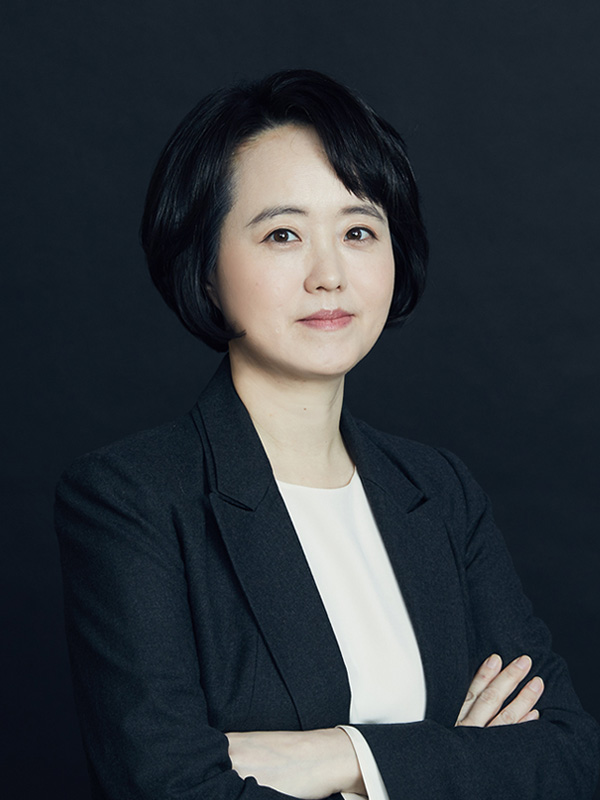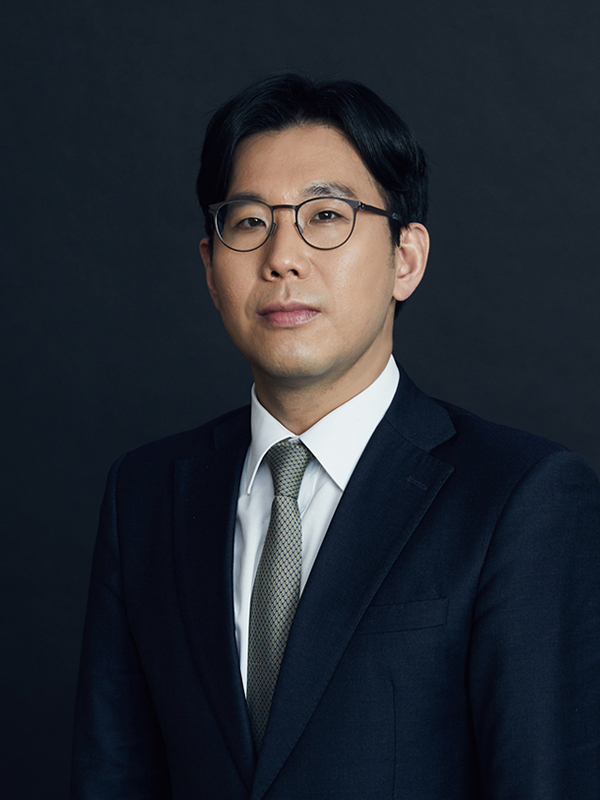After a period of stagnation, the virtual asset market is once again heating up as the price of bitcoin and other virtual assets have increased significantly in the second half of last year, and the U.S. Securities and Exchange Commission (SEC) approved a bitcoin spot exchange-traded fund (ETF) in January 2024.
With the Virtual Asset User Protection Act (the “Act”) set to take effect on July 19, 2024, we will examine the status of preparations for enforcement of the Act and share our thoughts on how the implementation of the new regulatory system will change the virtual asset market from a regulatory perspective.
1. Key Components of the Virtual Asset Users Protection Act and Differences from the Financial Investment Services and Capital Markets Act (the “Capital Markets Act”)
The Act defines virtual assets as “electronic certificates that have economic value and that can be traded or transferred electronically (including any rights thereto)” and imposes various obligations on Virtual Asset Service Providers (VASP) to protect virtual asset users, such as protection of deposits (Article 6), custody of virtual assets (Article 7), subscription to insurance (Article 8), and creation, preservation, and destruction of transaction records (Article 9). The Act also defines trade practices such as use of undisclosed material information related to virtual asset transactions, fraudulent and illegal transactions, market manipulation, and self-dealing by virtual asset service providers as unfair trade practices, and provides grounds for fines and criminal penalties (Article 10 and penalty provisions).
The scope of application of the Act, however, does not include the results obtained through the use of game products, prepaid electronic payment instruments and electronic currency under the Electronic Financial Transactions Act, central bank digital currency (CBDC) issued by the Bank of Korea, and non-fungible electronic tokens (NFT).
The provisions under the Act prohibiting the use of undisclosed material information, fraudulent transactions, and unfair trade practices seem to be fairly similar to those set forth in the Capital Markets Act. However, unlike the Capital Markets Act, market order disruption activities that may unfairly affect the market price despite the absence of intent to manipulate the market or to obtain unfair gain are not regulated under the Act. The Act also introduces prohibition of trading virtual assets issued by virtual asset service providers and their related parties in a much stronger form than the Capital Markets Act.
In addition, virtual asset service providers’ obligation to subscribe to insurance or mutual aid can be seen as a more robust measure in terms of user protection than that required under the regulatory system of the securities market.
2. Status of Preparation for the Enforcement of the Act
In order to enforce the Act, the Enforcement Decree of the Act, which is a presidential decree, together with the Virtual Asset Supervision Regulations, which are notified by the Financial Services Commission, and the Virtual Asset Market Research Business Regulations have been proposed and are in the process of being enacted.
In addition, the Financial Services Commission has designated the existing Financial Innovation Division as the main department in charge of enforcing the Act, and the Financial Supervisory Service has established two departments dedicated thereto, the Virtual Asset Supervision Bureau and the Virtual Asset Investigation Bureau, to complete the blueprint for the virtual asset regulatory authorities.
As a result, apart from the current process of collecting and analyzing suspected money laundering transactions and referring cases for investigation as conducted by the Korea Financial Intelligence Unit, the Virtual Asset Investigation Bureau of the Financial Supervisory Service is expected to investigate suspected cases of unfair trade in the virtual asset market and take measures such as referring cases to investigative agencies or filing charges based on the results of such investigations.
The prosecution has established the Virtual Asset Joint Investigation Team under the 2nd Chief of the Seoul Southern District Prosecutors’ Office to crack down on various illegal activities surrounding virtual assets even before enforcement of the Act. Even under the adverse conditions of dealing with various illegal activities in the virtual asset industry with general criminal regulations established in the days when virtual assets were non-existent, the Virtual Asset Joint Investigation Team is expanding its scope of application of laws in the virtual asset sector, including listing maintenance, MM work, various false disclosures, and illegal coin exchanges, beyond the coin listing irregularities mediated by money and goods.
Although the Act will be enforced from July 19, 2024, the general criminal regulations, not the Act, will be applied to any virtual asset transactions occurring up to that date, which will inevitably make the Virtual Asset Joint Investigation Team’s investigations of virtual asset cases form the mainstream of virtual asset criminal issues for the time being.
3. Impact and Prospects of the Enforcement of the Act
While it is difficult to predict how the enforcement of the Act will affect the virtual asset market – whether it will contribute to the revitalization of the market or maintain the current dynamism and volatility of virtual assets – it is possible to make the following predictions:
First, there is a possibility that the issuance of virtual assets through foreign corporations will increase rather than domestic issuance of virtual assets to avoid being subject to various regulations of the Act. Various attempts, such as issuing and operating virtual assets through overseas corporate establishments to circumvent regulations under the Act, are likely to increase.
Second, in the case of the securities market, a unified system called the Korea Exchange is used to monitor and detect unfair transactions, but in the case of virtual assets, there are multiple virtual asset exchanges, and even if unfair transactions are detected and eliminated by these virtual asset exchanges, the effectiveness of enforcement of the Act is expected to be significantly reduced, unless it is supported by a system to analyze them effectively and efficiently. In particular, it is difficult to expect the active detection of unfair transactions if the analyzing entity is not granted the right to compulsory investigation, such as the right to request transaction information without a warrant.
Third, unlike the securities industry, the virtual asset industry does not have in place a uniform disclosure system. As a result, various legal controversies, such as fraudulent and illegal transactions and the use of undisclosed material information are expected to arise in the early stages of enforcement of the Act. In other words, various legal battles may arise over whether or not undisclosed information has been disclosed, when to resolve undisclosed information, and the excessive breadth of unfair plans or techniques.
Fourth, delays in the investigation or prosecution of regulatory cases related to virtual assets are also anticipated. If the surveillance system, which is currently being prepared by the KRW virtual asset exchanges, goes into full operation, the number of cases of unfair trade will increase, but it is doubtful that the current judicial system will be able to effectively handle the extra volume of cases. There is currently a massive backlog of cases of suspicious transactions in cryptocurrencies that have been reported or investigated by the Korea Financial Intelligence Unit, and there is a concern that the current judicial system will be overloaded if another type of unfair trade case is added to the current investigation system without securing adequate experts.
In addition, it can be expected that the enforcement of the Act will serve to strengthen the stability of the virtual asset market and investor protection, giving up some degree of volatility, and promoting the concentration and large-scale development of existing virtual assets or virtual asset exchanges as the higher entry barriers make it difficult for virtual assets or transactions to newly enter the market.
4. In Closing
It will be interesting to see what happens to the virtual asset market after the enforcement of the Act, whether it will lead the virtual asset market into a safer and more mature stage by acting as a guardian of the market, or whether it will cause investors to lose interest in cryptocurrencies by excessively interfering and regulating the market.
From the perspective of the regulatory authorities, which have not had proper means to deal with fraudulent transactions even when they had detected cross-trading, we hope that they will be able to operate these new regulatory functions quickly and effectively, as they now have a chance to meaningfully regulate the virtual asset market in a manner that minimizes market distortions and promotes market stability and growth.
[Link to Korean Newsletter]

Jipyong News|KOREA LEGAL INSIGHT
In Anticipation of the Implementation of the Virtual Asset User Protection Act
2024.05.07
KOREA LEGAL INSIGHT
Improving Data Security: Guidelines on Applying the Personal Information Protection Act to Foreign Business Operators
2024.10.07
Professionals
-
 Korean Attorney+82-2-6200-1848 jheo@jipyong.com
Korean Attorney+82-2-6200-1848 jheo@jipyong.com
Jong HEO -
 Korean Attorney+82-2-6200-1743 ykyun@jipyong.com
Korean Attorney+82-2-6200-1743 ykyun@jipyong.com
Young Kyu YUN -
 Korean Attorney+82-2-6200-1726 hjshim@jipyong.com
Korean Attorney+82-2-6200-1726 hjshim@jipyong.com
Hee Jung SHIM -
 Korean Attorney+82-2-6200-1904 sdpark@jipyong.com
Korean Attorney+82-2-6200-1904 sdpark@jipyong.com
Sueng Dae PARK -
 Korean Attorney+82-2-6200-1970 mjkim@jipyong.com
Korean Attorney+82-2-6200-1970 mjkim@jipyong.com
Mi Jung KIM -
 Korean Attorney+82-2-6200-1773 jhyoo@jipyong.com
Korean Attorney+82-2-6200-1773 jhyoo@jipyong.com
Jung Han YOO -
 Korean Attorney+82-2-6200-1766 pjang@jipyong.com
Korean Attorney+82-2-6200-1766 pjang@jipyong.com
Poom JANG -
 Korean Attorney+82-2-6200-1974 ywshin@jipyong.com
Korean Attorney+82-2-6200-1974 ywshin@jipyong.com
Yong Woo SHIN -
 Korean Attorney+82-2-6200-1754 syjung@jipyong.com
Korean Attorney+82-2-6200-1754 syjung@jipyong.com
Sun Yeol JUNG -
 Korean Attorney+82-2-6200-1930 maseo@jipyong.com
Korean Attorney+82-2-6200-1930 maseo@jipyong.com
Min Ah SEO -
 Korean Attorney+82-2-6200-1932 mjlee@jipyong.com
Korean Attorney+82-2-6200-1932 mjlee@jipyong.com
Minju LEE -
 Foreign Attorney+82-2-6200-1810 cwro@jipyong.com
Foreign Attorney+82-2-6200-1810 cwro@jipyong.com
John C.W. RO